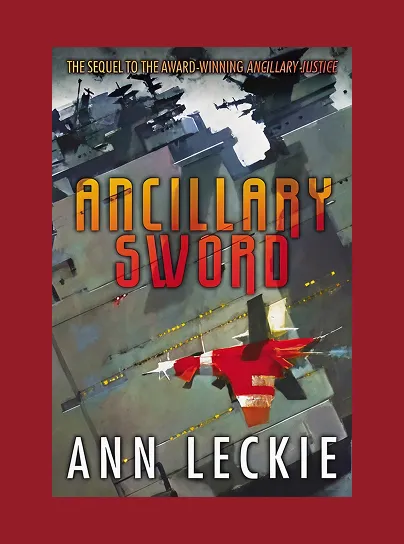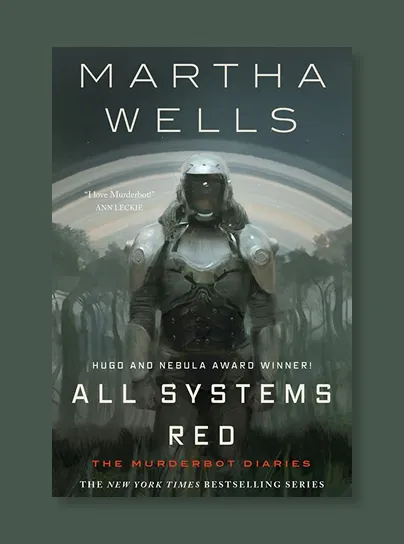
Ancillary Sword
Book 2 in the Imperial Radch space opera trilogy
This is an excellent book! I savored the exceptional storytelling.
When gathering my thoughts to write a report about it, I realized that I held my breath for the whole book. The writing is taut, crisp, and creates a visceral sense of the main character and the Radch empire as unforgiving, hard, metallic, dark.
In my report for the first book in this three book series, I described the writing as brutalist architecture. That feeling persists in this book. It feels monumental and massive, which is perfect for a space opera.
"They weren’t all destroyed.” Seivarden opened her mouth to protest, and I gestured to forestall her.
“Some of them fled. The makers of entertainments have wrung hours of dramatic adventure out of that very fact, of course. But it’s assumed that by now they’re all dead, with no one to maintain them. What if one fled to the Ghost System? What if it’s found a way to replenish its store of ancillaries? You recall, Sword of Atagaris said the person Hetnys dealt with looked like an Ychana, but spoke like a high-status Radchaai. And the Athoeki used to sell indentured Ychana away to outsystem slavers, before the annexation.”
“Aatr’s tits,” Seivarden swore. “They were dealing with an ancillary."
One of the many things I like about this book is how everyone misjudges the lead character. They assume the worst, but she’s not only not who everyone assumes she is, she is also not what everyone assumes she is.
Furthermore, she is always the most incisive, sensitive, caring, and principled person (or, rather, ship) in the room. She surprises everyone who interacts with her with her Propriety, Justice and Beneficence, which just goes to show you how far most Radchaai officials have fallen.
The book itself is about a sweeping empire that has begun to fracture, with the supreme ruler in a high-stakes battle with herself.
Throughout the book, we are guessing whose side each of the characters are on. Are they allied with the Anaander Mianaai who is trying to pull apart the empire or the one who seeks to hold it together by any means necessary?
But it had been a crisis waiting to happen. Thousands of bodies distributed over all of Radch space, twelve different headquarters, all in constant communication but timelagged. Radch space—and Anaander herself—had been steadily expanding for three thousand years, and by now it could take weeks for a thought to reach all the way across herself. It was always, from the beginning, going to fall apart at some point. Obvious, in retrospect. Obvious before, you’d think. But it’s so easy to just not see the obvious, even long past when it ought to be reasonable.
In addition to the story being told about the fate of the Radch Empire, there is another story being told about an individual. The author does a marvelous job of weaving those two storylines together. There are so many clever choices made in the writing!
Take the perspective of the narrator, the first person character, in this book referred to as Fleet Captain Breq Mianaai. We get a sense of what she’s thinking because we are in her head. Yet because she is a ship, we also get bio-metric information related to any person she wants to know about, and we get the perspective the AIs that Breq is in contact with (her ship, Mercy of Kalr, as well as the Atheoki station).
We also get whatever anyone on her ship sees or hears at any time, if she chooses to know of it. She is connected to all of it because of technology and because she is technology. It is absolute genius to write so commandingly with such devices in play. In the hands of a lesser writer, it could have been a disaster, but it works here because the writing is masterful.
The decade room on Mercy of Kalr flashed into my awareness, Seivarden seated, drinking tea, looking at schedules for today and tomorrow, the smell of solvent stronger than usual from the corridor outside, where three Amaats scrubbed the already spotless floor. The Amaats all sang quietly in ragged, off-key unison. It all goes around, the station goes around the moon, it all goes around.
This book won every major award when it was published. It is the only novel to have won the Hugo, Nebula, and Arthur C. Clarke awards.
Well-deserved, in my opinion.



